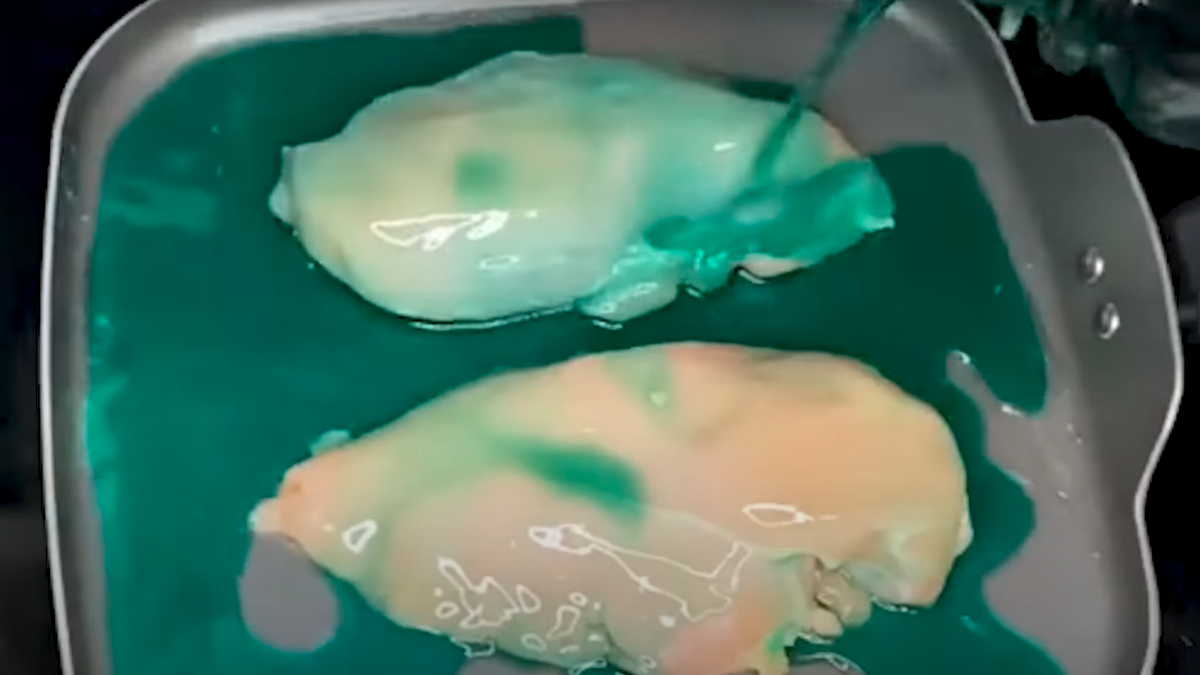
Misinformation Experts Disagree About Impact, But Say the FDA Acted Too Slow on NyQuil Chicken
Yotam Ophir, an associate professor at the University of Buffalo, told Gizmodo in an email that the FDA’s response was “was slow to the point of missing the train by months if not more.” Ophir studies the effects of social media content on health communication and pointed out that the NyQuil chicken “recipe” first appeared on 4chan as early as 2017.
Advertisement
The University of Buffalo professor said that it’s unclear why the FDA decided to tackle the misinformation around this issue now since it appears that there was little urgency. He theorized that perhaps the agency wanted to address it back when it was trending but preferred to wait to produce a more polished PSA. Or, Ophir added, it’s possible the FDA has information about the current prevalence of the practice that he does not.
However, the implications of such an announcement from a government agency could be “massive,” the professor pointed out.
Advertisement
“What might have been a niche online curiosity is now a national buzzing story. So by the very least, it’s plausible that the FDA inadvertently exposed many new (young) audiences to the challenge.” Ophir said. He added: “[M]any studies show that vulnerable adolescents are more impressionable and susceptible to social influence of this type. Long story short, raising the issue to national attention could backfire and lead young people to join the trend.”
Leticia Bode, an associate professor at Georgetown University specializing in the effective correction of misinformation on social media, agreed with Ophir on the timing of the FDA’s debunk. She told Gizmodo that experts in general prefer corrections be made in as close proximity as possible to the misinformation, both in terms of location and time.
Advertisement
This is not always possible, though, Bode explained, which means there are different courses of action to follow. She referenced “The Debunking Handbook,” a guide developed by nearly two dozen misinformation researchers in 2020. When the misinformation is already out there but largely unknown, it should be “monitored, without debunking” so as to not amplify its reach, according to the handbook. If the misinformation has traction, on the other hand, experts should “debunk often and properly.”
In this case, she said, you could argue both that the misinformation was largely unknown or that it had traction. One thing is certain, though, according to Bode: “the delayed debunk is likely to just draw new attention to the general idea of cooking chicken in Nyquil, which may or may not lead to more people trying it out.”
Advertisement
Timothy Caulfield, a professor at the University of Alberta who researches health misinformation, told Gizmodo that while he believes the FDA and other organizations should do a case-by-case evaluation of misinformation as it emerges, it is better to err on the side of a “quick, robust, science-informed, and shareable debunk.”
Nonetheless, Caulfield said that most available evidence shows that concern about spreading the bunk or causing folks to become more entrenched in their views—known as the backfire effect—when correcting misinformation is “likely overstated.”
Advertisement
Research from 2020 demonstrated that “it is safe to repeat misinformation when debunking it,” he emphasized.
Is Anyone Actually Cooking Chicken in NyQuil and Eating It?
At this point, it would be hard to find internet-connected people in the U.S. who haven’t heard about the FDA warning against the perils of NyQuil chicken. It’s even made a dent in the late-night talk show circuit. NyQuil chicken has been mentioned on The Daily Show With Trevor Noah and The Late Show With Stephen Colbert this week. The list of media outlets that have covered it is so long that I’m not even going to try to put it here.
Advertisement
Now, for the burning question on everyone’s mind: Are people actually cooking chicken in NyQuil and eating it?
Dr. Ryan Marino, a medical toxicologist and assistant professor at Case Western Reserve University School of Medicine, told Gizmodo that he believes NyQuil chicken is more likely “cringe content” than something that is actually happening. He said he hasn’t heard of any reports of people presenting for medical care after consuming NyQuil chicken, which would very likely be needed in such a case.
Advertisement
From a medical perspective, the toxicologist pointed out that he’s concerned that cooking chicken in NyQuil would result in an overdose of NyQuil. Marino explained that NyQuil is a combination product that contains acetaminophen (Tylenol), doxylamine (which is an antihistamine and sleep aid similar to Benadryl) and dextromethorphan (the main ingredient from Robitussin).
“All 3 of these ingredients cause toxicity in overdose, and acetaminophen in particular can be deadly in overdose. It is a very unpleasant way to die,” Marino said.
Advertisement
“It’s hard to draw the line between the corrective aspect of debunking and drawing additional attention to problematic things,” Marino said. Yet, the timing of the warning seems like a strange use of the agency’s time and resources, he added.
Marino underscored that the FDA’s warning wasn’t wrong, but he still thought it wasn’t the right thing to do. There are massive amounts of misinformation with significantly more real-life harms that it’s not addressing.
Advertisement
“We have a lot bigger food and drug issues happening right now than NyQuil chicken and I hope those aren’t getting ignored for old/found cringe content on TikTok,” he said.
Update 9/22/2022, 4:25 p.m. ET: This post has been updated with additional comment from the FDA.